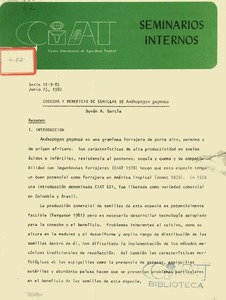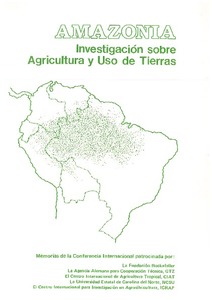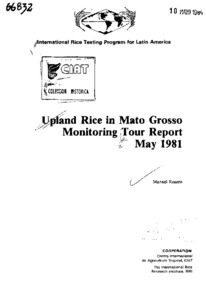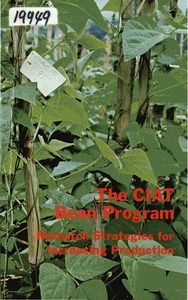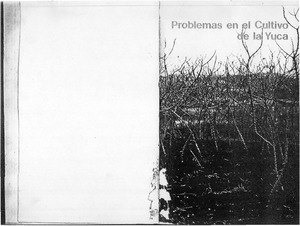Mission
To reduce hunger and poverty, and improve human nutrition in the tropics through research aimed at increasing the eco-efficiency of agriculture.
People
CIAT’s staff includes about 200 scientists. Supported by a wide array of donors, the Center collaborates with hundreds of partners to conduct high-quality research and translate the results into development impact. A Board of Trustees provides oversight of CIAT’s research and financial management.
Values
- Shared organizational ethic
- We respect each other, our partners, and the people who benefit from our work. We act with honesty, integrity, transparency, and environmental responsibility in all of our joint endeavors.
- Learning through partnerships
- We work efficiently and pragmatically together and with partners. Considering our diversity to be a key asset, we adapt readily to change and strive to improve our performance through continuous learning.
- Innovation for impact
- We develop innovative solutions to important challenges in tropical agriculture, resulting in major benefits for the people who support, participate in, and profit from our work.
Members:
Resources
Displaying 866 - 870 of 958Cosecha y beneficio de semillas de Andropogon gayanus
La produccion comercial de semillas de Andropogon gayanus es potencialmente factible, pero es necesario desarrollar tecnologia apropiada para la cosecha y el beneficio. Problemas inherentes al cultivo, como su altura en la madurez y el desuniforme y amplio rango de distribucion de las semillas, han dificultado la implementacion de los metodos mecanicos tradicionales de recoleccion. Ademas, las caracteristicas morfologicas de las espiculas y la presencia de aristas, espiculas esteriles y abundante pelusa ocasionan problemas particulares en el beneficio de las semillas de esta especie.
Conferencia sobre Investigación Agrícola y Uso de la Tierra en la Amazonía (1980, Cali, Colombia). Amazonia: investigación sobre agricultura y uso de tierras: memorias
Upland rice in Mato Grosso monitoring tour report, May 1981
The CIAT Bean Program Research strategies for increasing production
Problemas en el cultivo de la yuca
Information on some diseases and pests that attack cassava, as well as the symptoms induced by nutritional deficiencies and toxicities and damage resulting from the misuse of herbicides are given in this manual. Specific and general recommendations regarding the control of the described problems are included. Disease control on a commercial scale is discussed. Formulae suggested for stake treatment before planting and storage and a key for identifying some cassava diseases are annexed. Color photos on symtomatology are included. (AS)


